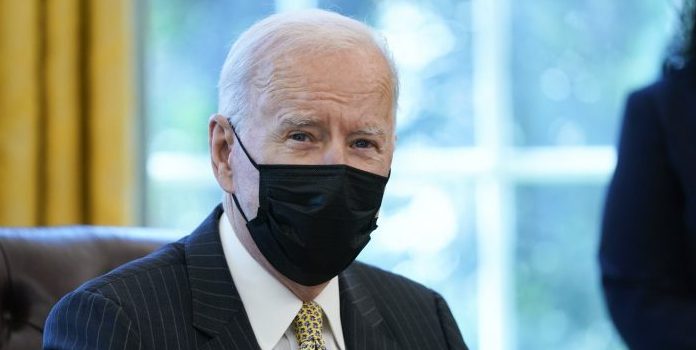(Headline USA) Beyond roads and bridges, President Joe Biden is trying to redefine infrastructure not just as an investment in America the place, but in its workers, families and people.
The first phase of his “Build Back Better” package to be unveiled Wednesday in Pittsburgh would unleash $2 trillion in new spending on four main hard infrastructure categories — transportation; public water, health and broadband systems; community care for seniors; and innovation research and development, according to people familiar with the proposal.
Those would be paid for by permanently raising the corporate tax rate from 21% to 28%, the people said, which would unwind the lower corporate rate put in place by the Trump administration. The corporate tax cut implemented by Republican majorities during the previous administration were partially credited for the economic surge Americans enjoyed during that time frame before the coronavirus took its toll.
The next phase would focus on soft infrastructure investments in child care, family tax credits and other domestic programs, paid for by tax hikes on wealthy individuals and families, they said.
Swelling to $3 trillion or $4 trillion, Biden’s new package proposes a massive investment on par with the Franklin Roosevelt’s New Deal or Lyndon Johnson’s Great Society.
The administration’s approach considers developing the human capital of America’s population a part of its infrastructure project.
“He’s talking about physical infrastructure and we’re talking about human infrastructure,” Sen. Bernie Sanders, the independent from Vermont who is chairman of the Budget Committee, said in an interview Tuesday.
The president is set deliver a speech Wednesday outlining the size and scope of his plan.
At a private briefing Tuesday for the top lawmakers of both parties, the administration shared plans for the first phase with Democratic committee chairmen and the top Republicans on the panels, a nod to the White House’s efforts at outreach and bipartisanship.
The White House team led by National Economic Council Director Brian Deese explained that the $2 trillion in spending would unfold over eight years, paid for by the corporate tax increases over 15 years.
That’s an accounting maneuver outside of the traditional 10-year budget window used by Congress, meaning it will likely run into trouble with budget rules and need to be adjusted.
The details were provided by people familiar with the call and granted anonymity to discuss it.
Funding Biden’s infrastructure initiative with tax hikes has been controversial. Raising the corporate tax rate to 28% from 21% would generate some $700 billion over 10 years, one of the people said. The administration is also eyeing a new global minimum tax.
Biden promised on the campaign trail not to raise individual taxes on those earning less than $400,000 but new details on the individual tax hikes were scant at Tuesday’s briefing.
Tax hikes on the wealthy, most likely changes to the top rates, are expected to pay for the so-called “human capital investments” coming in two weeks.
Even though Republicans were invited to join Tuesday’s briefing, key GOP leaders are already panning the package as too big and too costly for them to support.
“It seems like President Biden has an insatiable appetite to spend more money and raise people’s taxes,” said Rep. Steve Scalise of Louisiana, the GOP whip, in an interview.
Scalise predicted that, if approved, the new spending and taxes would “start having a negative impact on the economy, which we’re very concerned about.”
Sweeping in scope, the ambitious plan aims to make generational investments in infrastructure, revive domestic manufacturing, combat climate change and keep the United States competitive with China, according to administration officials.
Though the White House is emphasizing the urgency, the administration is also working deliberately to build support. It wants to see progress on the new legislation by Memorial Day and have it passed over the summer, White House officials said.
Biden’s approach is about “making an investment in America,” said White House press secretary Jen Psaki.
“Not just modernizing our roads, our railways and our bridges, but building an infrastructure of the future,” she said, pointing to broadband access and the “needs in people’s homes and communities.”
Adapted from reporting by the Associated Press.

